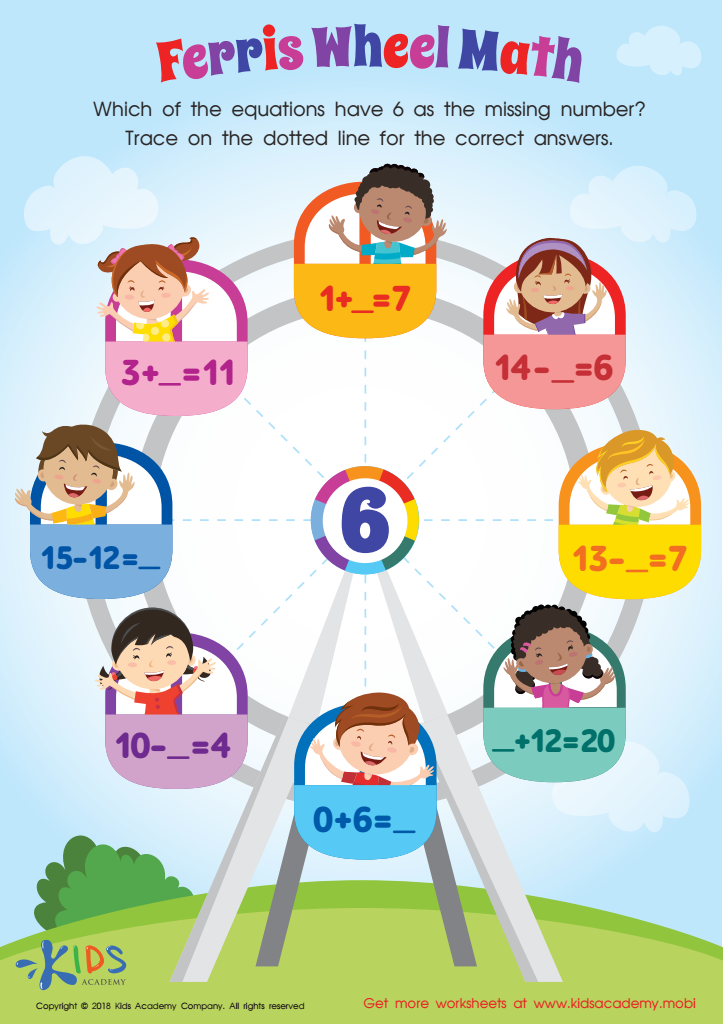Learning number sequencing Worksheets for Kids
2 filtered results
-
From - To


Missing Number: Ferris Wheel Math Worksheet
Question/Answer
How to train the Learning number sequencing skill in Grade 1 students learning about Addition & Subtraction?
To train Grade 1 students in learning number sequencing with addition and subtraction, use interactive methods like number line activities, sequencing games, and puzzles. Incorporate hands-on learning with physical objects for counting, adding, and subtracting. Practice with worksheets that gradually increase in difficulty and include real-life scenarios to make learning relevant and engaging. Reinforce concepts through repetition and positive reinforcement.
How to test a Grade 1 student’s Learning number sequencing skills?
To test a Grade 1 student's learning number sequencing skills, you can use visual aids like number cards or interactive games. Start with simple sequences, asking the student to identify the next number in a sequence or fill in missing numbers. Gradually increase complexity by introducing larger numbers, backward sequences, or skip counting to ensure comprehensive skill assessment.
How does the mastery of the Learning number sequencing skill affect a student's performance at an early age?
Mastery of the Learning number sequencing skill at an early age significantly boosts a student's mathematical understanding and performance. It lays a foundation for recognizing patterns, understanding arithmetic operations, and solving problems. This early competency facilitates a smoother transition to more complex mathematical concepts and operations, enhancing overall academic achievement and confidence in mathematics.
 Assign to the classroom
Assign to the classroom













